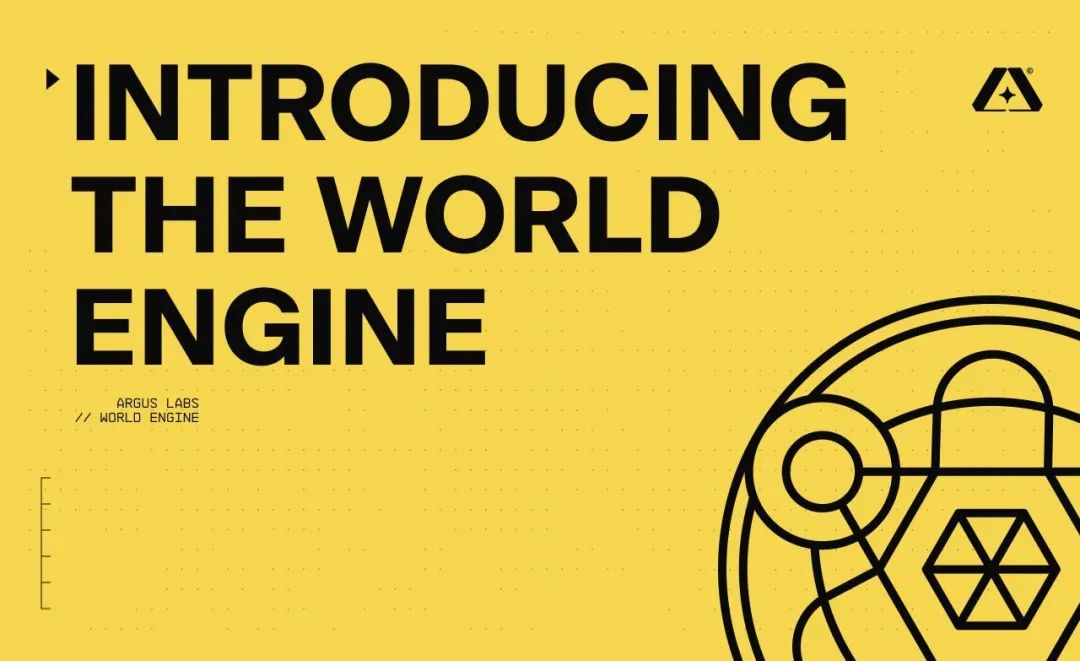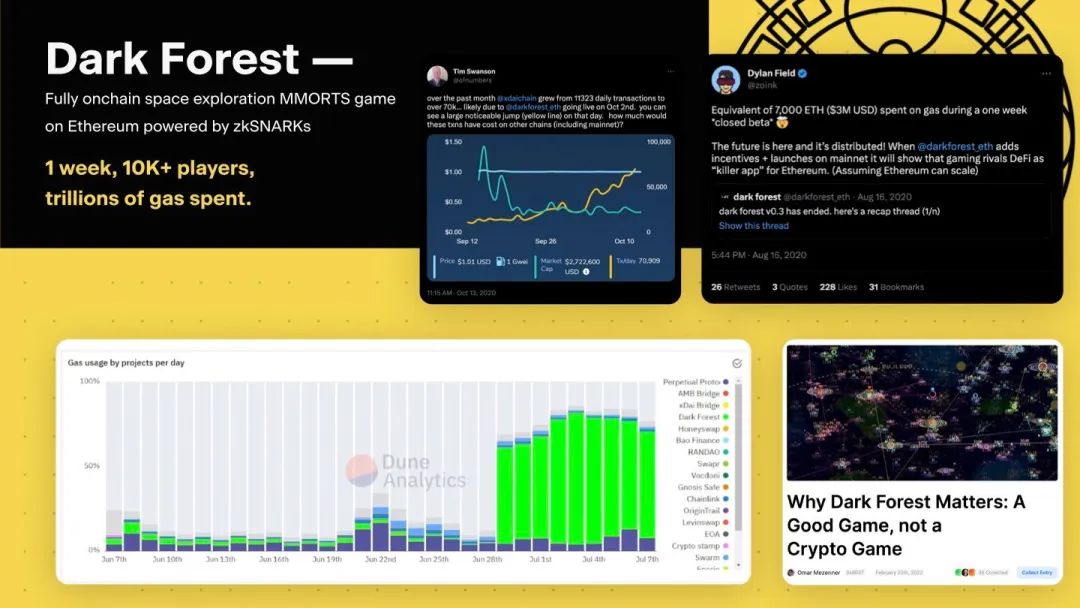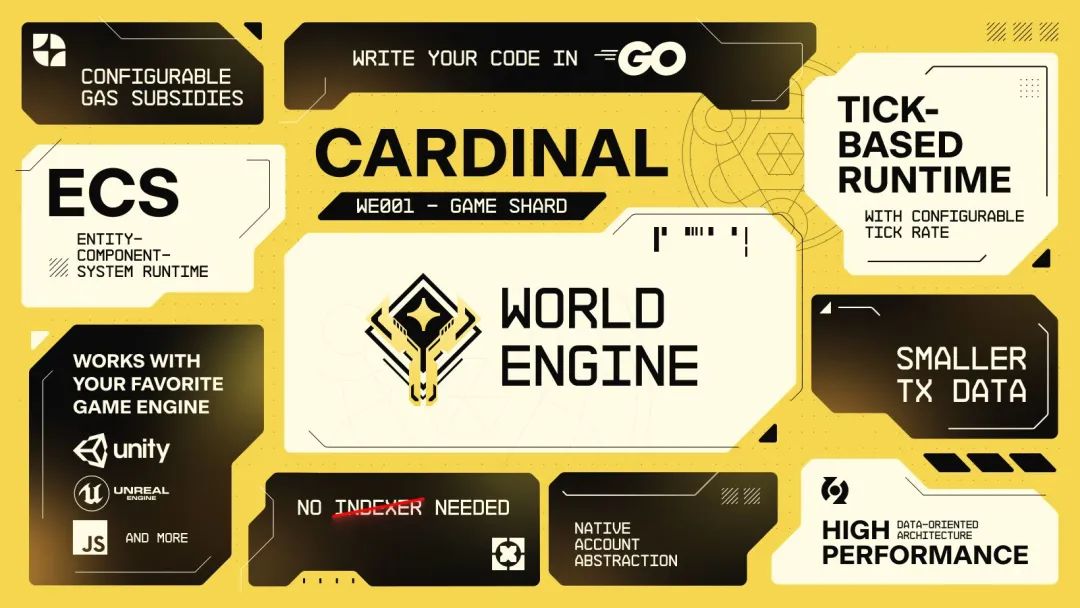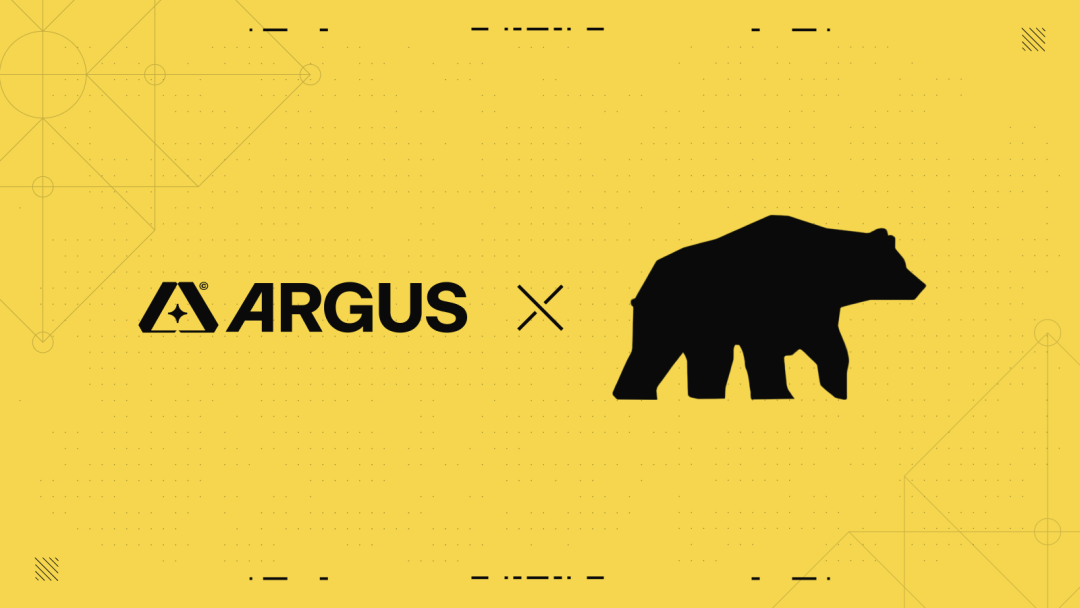World Engine: Introducing game sharding, a high-performance end-to-end game platform
World Engine: Introducing high-performance game sharding platform.Original author: Scott Sunarto@Argus Labs
Original title: INTRODUCING WORLD ENGINE BY ARGUS

From the Magnavox Odyssey (the first commercially available video game console released in 1972) to Ultima Online (an MMORPG game product released in 1997), the video game industry has always been propelled forward by rebels who are crazy enough to try and create the seemingly impossible.
- Synthetix launches alpha version of V3 spot market, here’s a quick overview of its main features and functionalities
- Overview of the Value of StarkNet Ecosystem: Representative Projects, Development Prospects, and Limitations
- AI+Web3 Race Research Report: Following the Trend and Narrative Dominance
Argus is a game development and publishing house made up of hackers and designers committed to driving the next major paradigm shift in the video game industry.
Our mission: to be pioneers in the gaming internet
We are proud to announce the first seed we are sowing for the future of the gaming world – World Engine, a blockchain system redesigned for fully on-chain games. World Engine provides game developers with a foundation that enables them to build and customize their own open and interoperable game worlds. With World Engine’s new Layer 2 sharding architecture, each game can have its own blockchain infrastructure that belongs to its own community, is horizontally scalable, and can grow together.
01. Status quo: The gaming industry is still in isolation
Although online games were born on the Internet, they are currently isolated and forced to be severed from a potential complete game universe. Although game designers, developers, and players are working hard to create more innovative gameplay, user-generated content, and platforms in games, our underlying infrastructure for running games contributes little to this.
Game developers are bound by the shackles of mainstream platforms. While game players crave greater creative freedom, they are always limited by access to core game logic and data. This situation, in which games cannot communicate seamlessly with each other, hinders game design innovation and suppresses the development of cross-game economies.
02. Creating excellent content driven by technological breakthroughs
The pursuit of fun and exploration of novel technology prototypes are inseparable. Imagine if John Carmack said, “Let’s forget it and keep making 2D games” instead of developing Doom and the real-time 3D technology he used; the video game industry today would probably look completely different.
Every so often, a technological catalyst disrupts the video game industry, offering startups that are innovative and agile a chance to challenge former industry titans.
- The CoinOp/arcade era (~1970s) brought Nintendo, Atari, and Sega;
- The internet era (~late 1990s) paved the way for the rise of NCSoft and Valve;
- The social game era (~late 2000s) created opportunities for Zynga’s growth;
- The mobile game era (~2010s) catapulted Scopely and Supercell to fame.
These technological catalysts have inspired generation after generation of video game developers and publishers. However, the battle is not won merely by tweaking their predecessors’ scripts. Instead, innovators find new ways to make their medium stand out with new gaming forms and develop them vigorously.
The winner in the internet game era is not “the online version of Pac-Man”!
The winner in the encrypted game era will not be “Hearthstone with NFTs” either!
Argus believes that blockchain will be the next technological catalyst to drive the development of the gaming industry, providing an experimental field that can make the gaming world exceed the lifespan of its creators, release players’ creative freedom, offer innovative gameplay, and stimulate cross-game economic activities.
Argus is an uncompromising encryption company and also an uncompromising gaming company. The ultimate goal is to achieve both, not to give up either one.
03. Dilemma of Game Infrastructure
Argus can be traced back to 2020 when my friends (Gubsheep, Alan Luo, etc.) and I developed Dark Forest, the first full-chain MMORTS game on Ethereum.
We tried to answer a simple but crazy question: “What happens when you create a game where all actions occur on-chain?”
The release of Dark Forest showed people the future of encrypted games: a great game can coexist with player-driven content, tools, and platforms that can directly interact and combine on the basis of the core game state and rule set.

Through smart contracts, players can independently build various plugins, such as game item trading markets, information exchange centers, guild systems, mercenary systems, etc. This ability to create and enrich the game world without interference from the project party has made many players very excited.
However, we also found that building a fully on-chain game like Dark Forest is still a daunting task for many developers.
Current blockchains are not designed to run games
Developing games on the blockchain is like developing games on Microsoft Excel. Although it may be Turing complete, it imposes many restrictions on the way the program is written.
For example, blockchain smart contracts cannot automatically execute at each fixed interval to implement the essential “game loop” system in the game server. This brings extra trouble to game developers and also limits their creativity.
Therefore, many game developers are satisfied with putting in-game items as NFTs on the chain, and fully on-chain game developers can only create within limited design space, restricting them to simple strategy or turn-based games, simply because these games have low requirements for interaction frequency.
Existing blockchain game infrastructure is a patched-together solution
In recent years, many companies have tried to become the “shovels and shovels” (referring to providing infrastructure services) in the field of crypto games, but the current methods are limited in capabilities and often do not solve the root cause of the problem.
For example, many L1/L2 blockchains claim to be “blockchains born for games”, but upon closer inspection, they are only “blockchains born for JPEGs”.
When you have a hammer, everything looks like a nail; as a result, many crypto games only rely on NFTs as substitutes for in-game assets, with limited benefits for end users. At the same time, this way of thinking also creates a self-imposed limitation that hinders the exploration of new on-chain game modes, experiments that could unlock a large number of novel game design logics and brand new game experiences.
On the other hand, game developers in the on-chain gaming community have had to resort to “Band-Aid” solutions to bridge the infrastructure gap. While these solutions make the development process slightly easier, the inherent limitations of current blockchain architectures and virtual machines force game developers to make significant compromises, while also not providing a clear path to the performance support necessary for future commercialization.

04. Let’s Get to Know World Engine
“The beginning of a new world–I call it a seed.
Once it sprouts, you’ll know what it is.
How you use it is up to you.” – Kayaba Akihiko
The release of Dark Forest exposed an obvious problem: current blockchain infrastructure is not suitable for supporting on-chain gaming. As a one-size-fits-all solution, the limitations of existing blockchain architectures become increasingly apparent as we push their computing power and flexibility to the limit.
To address this problem, we asked ourselves: What would a blockchain designed solely for gaming from the ground up, while retaining interoperability and composability, look like?
That’s why World Engine was born.
World Engine is a sharded layer 2 blockchain SDK designed with the needs of game developers and players in mind. As a layer 2 blockchain, World Engine inherits the security and decentralization of the underlying blockchain, allowing game developers to focus on what they do best: creating unforgettable gaming experiences.
Scale with your game: Execute Sharding

The main innovation of World Engine is its sharding design, inspired by the server architecture of compute-intensive massively multiplayer online (MMO) games.
Sharding allows game developers to distribute their game load across multiple shards. As a result, a World Engine chain can adjust its throughput according to demand, growing in synchrony with developers or publishers. At the same time, World Engine’s sharded architecture also avoids the interoperability/platform fragmentation issues that arise from scaling by launching another separate rollup.
Game Sharding: A performant and expressive game backend

World Engine’s sharding approach also allows for a separation between the game execution layer (Game Shards) and the smart contract execution layer (EVM Shards). This opens up a broad design space for building an optimized state machine specifically for handling game-related computations.
Using Game Shards helps us avoid performance bottlenecks encountered when running games directly on existing blockchain virtual machines, such as:
- Low block time tick rate;
- Complexity due to writing and debugging game logic in Solidity;
- Reliance on external indexers introducing additional latency;
Through Game Shards, we will be able to provide you with the high-throughput game server performance you expect while maintaining blockchain interoperability.
We are excited to introduce our first Game Sharding implementation–Cardinal.
Cardinal is a high-performance Game Shard capable of handling workloads for performance-intensive games. The entity-component-system (ECS) architecture of Cardinal provides a familiar development environment for developers without prior experience in secure game development.
Cardinal’s game logic is written in Go–this eliminates the need for developers to learn a new programming language such as Solidity or Vyper. Lastly, but equally important, Cardinal can seamlessly integrate with existing game engines such as Unity and Unreal through client libraries; no more dealing with complex blockchain integrations!
Interoperable EVM Sharding: Customizable and gamified EVM Shards with seamless interoperability

World Engine’s EVM base shard provides a center for players and developers to build user-generated content and platforms, and seamlessly interoperates with Game Shards through our Shard Router system. In addition to its sharding capabilities, World Engine’s EVM Shards function similarly to an EVM rollup, allowing you to use all the developer tools, wallets, and libraries just like on Ethereum.
There are even more interesting features. Thanks to the high-performance modular EVM framework Polaris developed by Berachain, the EVM shards of World Engine can be customized with expressive stateful precompiles and plugins to achieve practical features such as subsidizing gas for users, or even crazy ideas such as gamified deployment of smart contracts. Your imagination is the limit.
05. Try developing with World Engine
Today, we are excited to announce that we are accepting a small number of teams to participate in the internal testing of World Engine.
World Engine internal testing application link: https://argus.gg/we-beta
As part of the internal testing, you will have the opportunity to experience World Engine before others, and we will provide direct support channels to the core team of World Engine to help you solve any problems, whether technical or non-technical (game design, GTM, etc.).
The internal test version will give us the opportunity to fully absorb everyone’s feedback for several months before the official release.
06. Explore the future of the gaming internet
We see World Engine as a shared backbone network for building the gaming internet. As the world increasingly embraces open and interoperable gaming, World Engine will not only enable communication between games, but also allow game developers to build an ecosystem of tools, platforms, and building blocks on top of it.
As the manager of World Engine, we believe the following guiding principles are crucial to achieving this:
- World Engine is designed by players and everything is a product for players – we will not distract ourselves by solving a problem that will not help players and game developers.
- World Engine is open source – we are not a company that sells “shovels and picks”. The internet was not built as a B2B enterprise SaaS product; the gaming internet will not be either.
It’s time to usher in a new era of video games. An era where creators, hackers, and geniuses lead the industry once again.
Together, we will redefine the value of games.
Together, we will plant the seeds for the future gaming world.
Thanks to Breck Stodghill (Haun Ventures), Rachael Horwitz (Haun Ventures), Calvin Liu (Eigenlayer), Jacob Arluck (Celestia), and Ekram (Celestia) for reviewing the draft and providing feedback.
We will continue to update Blocking; if you have any questions or suggestions, please contact us!
Was this article helpful?
93 out of 132 found this helpful
Related articles
- Inventory of Polychain Capital investment projects: Quasar, nil, SBlockingCE ID…
- Optimism has completed the Bedrock mainnet upgrade, and its native token OP has increased by over 10%.
- With no pre-mining and a fair launch, how did the FairERC20 protocol become so popular overnight?
- Deep Analysis of the Past, Present, and Future of Full On-chain Games
- New Project Preview | Interpreting Convergence: A Governance Aggregation and Profit Redistribution Layer Similar to Convex.
- Explanation of this week’s unlocked tokens: DYDX, TORN, and 7 other projects are set to unlock
- Hong Kong’s new encryption regulations come into effect: taking stock of the “first batch of pioneers”






